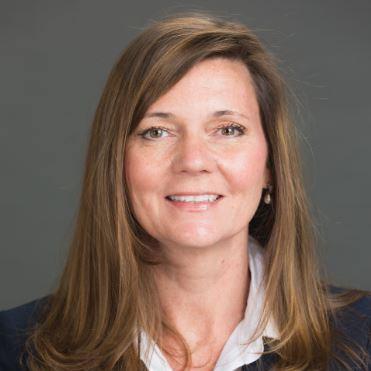
Dozens of behind-the-scenes financial consequences and questions result from even the simplest of clinic visits to one of our neurologists. Caroline Folger, revenue manager for the Duke Neurology Department and the Private Diagnostic Clinic, has had to account for all of them even as our Department and the PDC has responded to an unprecedented public health crisis. In this week’s “Spotlight” interview, Folger talks to us about this work and how she’s helped the Department transition from 0 to more than 5,000 billable telehealth hours since the COVID-19 pandemic reached the United States. She also discusses the changes that come with the Neurology Department’s growth over the past five years and enjoying time with her children and their friends when she’s not at work.
What are your responsibilities within the Neurology Department? What does a typical day for you look like?
Revenue managers are responsible for oversight of the revenue cycle for their assigned clinical area which includes many components: charge capture, documentation, billing, collections, claim edits, denials, work queue management, payer relations, payer bulletin dissemination, authorizations, education, enrollment, reporting, provider support, revenue integrity councils, and liaison to the PRMO. I get to work closely with PRMO teams, other PDC revenue managers, providers, and PDC compliance on various Neurology projects to ensure we capture revenue and minimize any negative impacts to cash flow.
My role is atypical from other PDC revenue managers, since I’m part of the Department. In addition to revenue management responsibilities, I support the department’s clinical operations and strategic initiatives with clinical faculty FTE capture and reporting, outpatient wRVU dashboards, and data analysis/support for department leadership.
There is no typical day which is why I love what I do! Each day brings different opportunities.
How have your duties been affected by the continuing COVID-19 pandemic? What’s one resource or strategy that’s helped you compensate?
Thankfully, a lot of what I do can be done remotely as long as I have a strong internet connection to access MaestroCare and the reporting platforms used to run reports for analysis. The biggest change has been the conversion to telehealth. While there were telehealth platforms within Neurology (telestroke, outpatient ALS research video visits, ACNP procedures), we didn’t bill these services to third-party payers. Since the start of the pandemic, our Department has already completed more than 5,000 billable telehealth encounters. Quite a swing from zero!!
Right now, it seems the work never ends. At the beginning of the pandemic, the payers changed billing rules and claim requirements almost daily. It was incredibly stressful when trying to get claims out of work ques. I found taking breaks where I walked away from the computer helped tremendously. Working outside on the weekend and spending quality time with my kids have been my biggest coping strategies. I try to look for the positives. We have enjoyed more family time and dinners together.
What do you enjoy most about your work?
Interactions with providers and colleagues. Seeing payer policies change due to our efforts is extremely rewarding.
What’s the hardest part of your job?
Conflicting guidance and policies across the many payers which is a large contributor to our denials and inherent with a multi-payer system. Communication is always a challenge in a larger department. Revenue management touches every aspect of the clinical enterprise and can be overlooked.
Other than COVID-19, what’s the biggest change that’s happened to your work since you came to the Neurology Department?
Overall, I would say the biggest change since coming to Neurology has been explosive clinical growth. Growth is great, but new initiatives and volume always bring challenges with payers and work flows. There are many more systems and tools to perform revenue reporting and analysis which can be daunting.
How does your work in the Neurology Department compare to the work you did in the Departments of Medicine and Obstetrics and Gynecology?
My roles in Neurology, Medicine/Pulmonary and Ob/Gyn are all very similar. Each job has had a different administrative leadership component allowing me the opportunity to work and learn different components of an academic system.
What other passions or hobbies do you have outside of the Department?
I love spending time with my kids and their friends: soccer, swim, volunteer work! In my “own” spare time, I enjoy reading and working in my flower gardens.

Folger celebrates Mother's day with her children David, Kat and Jourdan, along with two of their close friends.